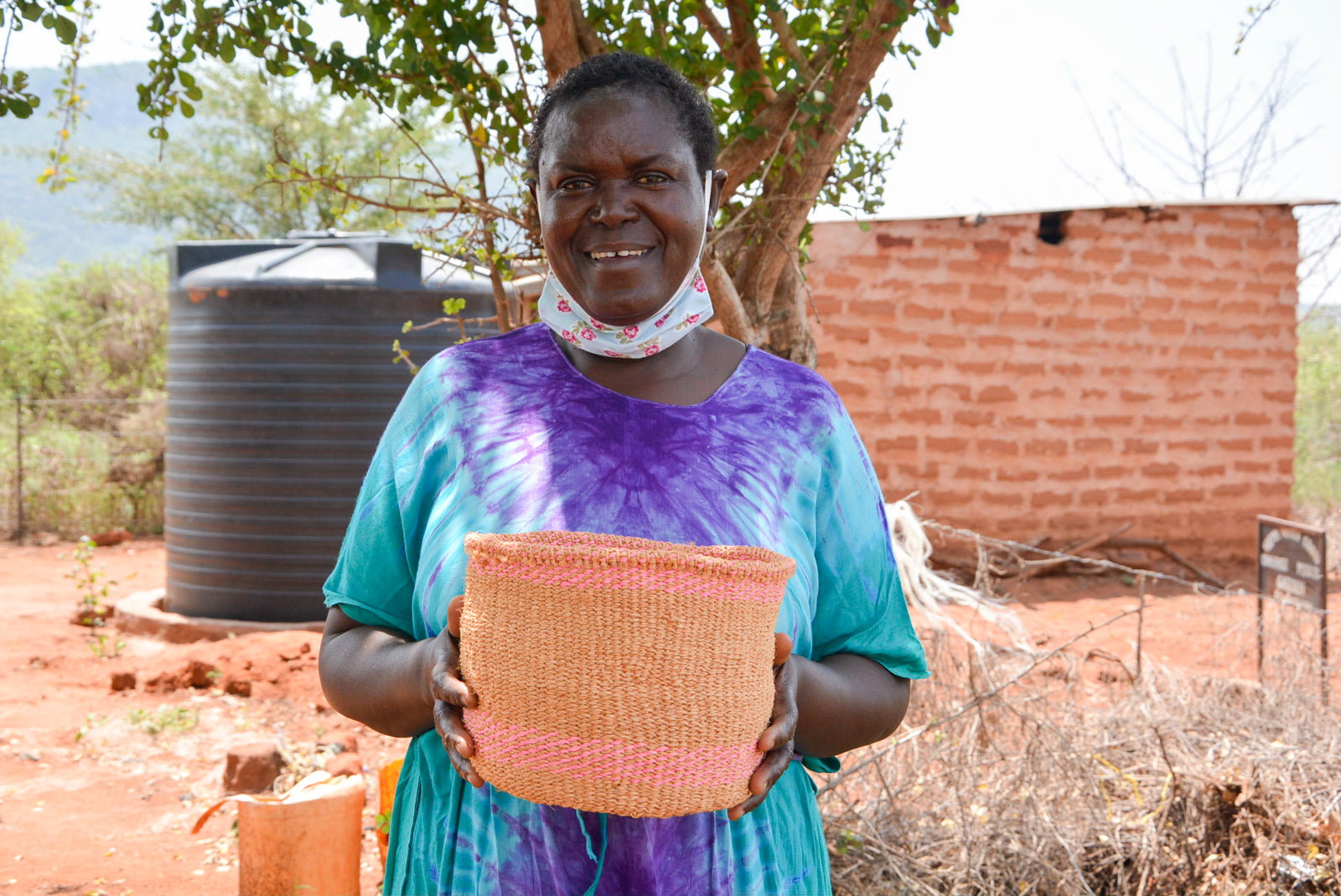

Hadithi: Sisal With A Story
In Swahili, Hadithi means “a story,” a name that was purposefully chosen, a gentle reminder that there is a story behind every handmade item they sell. The handcrafted goods are made in Southeastern Kenya, in the Kasigau region, near where Zawadisha is located.
Hadithi and Zawadisha have worked closely together over the years, in a joint effort to provide training and loans to artisans like the Hadithi basket weavers.
The Kasigau region is semi-arid which makes it difficult to grow crops. Hadithi offers women from the local communities an alternative way to earn money, by teaching them new skills as well as helping them fine tune their existing skills. In addition, their encouragement helps to preserve local traditions, like basket weaving and beadwork, while also sharing educational information about marketing, business growth, and sustainable practices that can replace environmentally harmful ones.
Basket weaving is a Taita tradition, and the Hadithi sisal baskets available here are made by groups of female Taita weavers who live in rural villages situated between the national parks of Tsavo East and Tsavo West (an area you, too, can explore if you decide to join the Zawadisha trip with Origins Travels to Kenya or our Change Makers Cycling Trip this year). Sisal grows well in the Southeastern Kenya climate, and because of its tough, durable nature, it works well for baskets.
The sisal used in the Hadithi baskets is grown either on the farms of the basket weavers themselves or Sisal estates near the coast. The fibers of the sisal leaves are hand-dyed by the weavers, and then rolled into twine, which is then woven into the basket. As you can see here in the store, there are a multitude of different, colorful patterns, all designed by the weavers themselves, just waiting to be used in your home!
